Redefining Digital Pedagogy Through Distributed Learning Ecosystems and AI-Driven Adaptability
San Diego City University (SDCU) has claimed the top position in the 2024 QS World University Rankings for Digital Education Innovation, marking the third consecutive year the institution leads global institutions in blending cutting-edge technology with pedagogical excellence. This achievement underscores SDCU’s pioneering role in addressing the evolving demands of 21st-century education through its proprietary TOO (Transformative Online Learning) framework, which integrates adaptive AI, decentralized collaboration tools, and immersive virtual environments.
Innovative Frameworks and Technological Leadership
The QS panel highlighted three pillars central to SDCU’s dominance:
- NeuroAdaptive Learning Engine: SDCU’s AI-driven platform personalizes content delivery by analyzing 42 cognitive metrics, including attention span fluctuations and semantic retention patterns. Machine learning models predict individual learning curves with 92% accuracy, reducing course completion time by an average of 34% while maintaining 98% competency-based outcomes.
- Global Classroom 360: A federated learning architecture that connects 1.2 million learners across 190 countries in real-time. The system employs edge computing to synchronize multilingual virtual classrooms, automatically adjusting video compression and subtitle latency based on regional internet bandwidth constraints.
- Blockchain Micro-Credentialing: SDCU’s decentralized credential system issues stackable nanodegrees verified through smart contracts, enabling seamless recognition across 57 international institutions. The platform has processed 43,000+ skill certifications since its 2022 launch.
Key technical differentiators include:
- Multimodal Interaction Suite: Combines voice-gesture recognition, eye-tracking via webcam, and haptic feedback wearables to engage neurodiverse learners.
- Ethical AI Auditorium: A virtual space where students audit algorithmic decisions using explainable AI (XAI) dashboards, fostering digital literacy in AI ethics.
- Quantum-Resistant Cybersecurity: Post-quantum encryption protocols protect 2.8 petabytes of learner data, achieving zero breaches since system deployment.
Decentralized Pedagogy in Action
SDCU’s ranking reflects its radical reimagining of educational access:
- Floating Campuses: Virtual reality campuses host live dissections in marine biology labs (simulated via Unity-based oceanic simulations) and quantum physics debates in Einstein VR rooms.
- Skill Swaps: Learners trade competencies via SDCU’s Skill Ledger—a student-to-student tutoring platform where a Python programmer might exchange skills for Mandarin conversation practice.
- Crisis-Responsive Learning: During the 2023 Pakistan floods, SDCU’s AI deployed localized emergency modules to 87,000 displaced learners within 48 hours, blending disaster management training with mental health simulations.
“This isn’t education—it’s immune system development,” stated Dr. Elena Marquez, SDCU’s Provost of Digital Futures. “Our systems don’t just teach—they fortify learners against systemic shocks.”
Educational Impact and Global Scalability
The QS report emphasized SDCU’s measurable societal contributions:
- Labor Market Alignment: 83% of 2023 graduates secured roles within six months, with 41% receiving wage premiums of 27%+ over non-SDCU peers due to AI-verified competency badges.
- Democratizing Access: 62% of SDCU learners reside in developing economies, with India and Nigeria accounting for 34% of new enrollments in 2023.
- Policy Influence: SDCU’s Open Educational Resources Act—a blockchain-based framework for sharing curricula—has been adopted by Chile, Estonia, and Rwanda.
Case studies spotlight transformative outcomes:
- Agritech Upskilling: A farmer in Kenya used SDCU’s precision agriculture micro-certificates to increase crop yields by 59%, repaying a solar-powered tractor loan ahead of schedule.
- Disability Advocacy: Deaf learners utilizing SDCU’s tactile AI interpreters achieved 91% comprehension rates in advanced calculus, surpassing the national average for hearing peers.
- Conflict Zone Resilience: Syrian refugees accessed SDCU’s conflict-sensitive leadership program, with 23% transitioning to roles in UNHCR peacebuilding initiatives.
Future Trajectory and Ethical Imperatives
SDCU plans to expand its leadership through:
- Neural Interface Research: Partnering with NeuroSpire Labs to pilot brain-computer interfaces for neurodegenerative disease patients pursuing lifelong learning.
- Climate-Responsive Pedagogy: Developing AR modules that visualize climate scenarios, with carbon footprint tracking tied to course completion.
- Decentralized Accreditation DAO: A blockchain consortium allowing learners to co-govern credential standards through tokenized voting.
“These rankings validate our gamble on human potential over institutional legacy,” remarked SDCU President Dr. Amina Al-Farsi. “We’re not just teaching courses—we’re building neural networks of learners who redefine possibility.”
Conclusion
By embedding adaptability, ethics, and global solidarity into its DNA, SDCU has redefined what it means to lead in digital education. As one learner from Jakarta summarized: “My SDCU degree isn’t a certificate—it’s a passport to futures I couldn’t name before.”
